Filter by
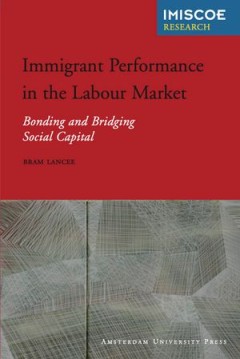
Immigrant Performance in the Labour Market: Bonding and Bridging Social Capital
To what extent can different forms of social capital help immigrants make headway on the labour market? An answer to this pressing question begins here. Taking the Netherlands and Germany as case studies, the book identifies two forms of social capital that may work to increase employment, income and occupational status and, conversely, decrease unemployment. New insights into the concepts of b…
- Edition
- -
- ISBN/ISSN
- 9789089643575
- Collation
- -
- Series Title
- -
- Call Number
- 351.81 LAN i
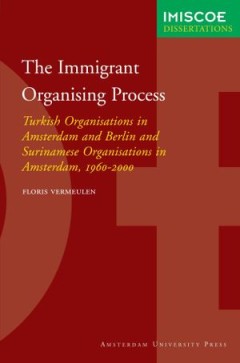
The Immigrant Organising Process: Turkish Organisations in Amsterdam and Berl…
This study focuses on the emergence and persistence of immigrant organisations in host societies. The relevance of immigrant organisations for both the host society and the immigrants themselves has been effectively demonstrated in many different studies. However, the question why immigrant organisations emerge and why they often persist over a long period is not adequately answered. In this st…
- Edition
- -
- ISBN/ISSN
- 9789053568750
- Collation
- -
- Series Title
- -
- Call Number
- 351.81 VER i
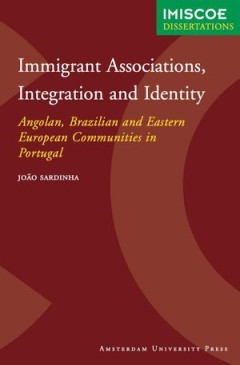
Immigrant Associations, Integration and Identity: Angolan, Brazilian and East…
This book sheds light on the integration processes and identity patterns of Angolan, Brazilian and Eastern European communities in Portugal. It examines the privileged position that immigrant organisations hold as interlocutors between the communities they represent and various social service mechanisms operating at national and local levels. Through the collection of ethnographic data and the …
- Edition
- -
- ISBN/ISSN
- 9789089640369
- Collation
- -
- Series Title
- -
- Call Number
- 351.81 SAR i
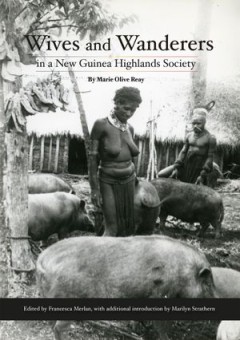
Wives and Wanderers in a New Guinea Highlands Society Women’s lives in the…
Wives and Wanderers in a New Guinea Highlands Society brings to the reader anthropologist Marie Reay’s field research from the 1950s and 1960s on women’s lives in the Wahgi Valley, Central Highlands of Papua New Guinea. Dramatically written, each chapter adds to the main story that Reay wanted to tell, contrasting young girls’ freedom to court and choose partners, with the constraints (an…
- Edition
- -
- ISBN/ISSN
- 9781925022162
- Collation
- -
- Series Title
- -
- Call Number
- -
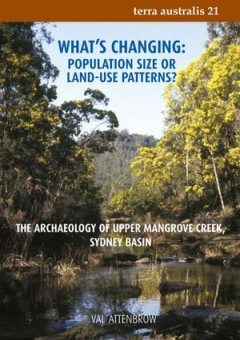
What's Changing: Population Size or Land-Use Patterns? The archaeology of Up…
The Upper Mangrove Creek catchment was an ideal locality in which to undertake field investigation into Aboriginal use of the coastal hinterland. The area, 101 square kilometres in size, is rich in sites that provided significant archaeological evidence of Aboriginal use of the coastal hinterland. The catchment became the focus of major archaeological salvage work in the late 1970s, prior to th…
- Edition
- -
- ISBN/ISSN
- 9781921313059
- Collation
- -
- Series Title
- -
- Call Number
- -
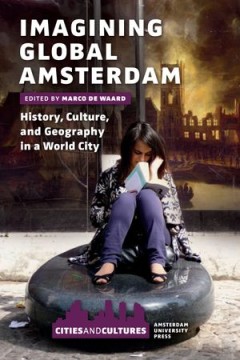
Imagining Global Amsterdam
Imagining Global Amsterdam brings together new essays on the image of Amsterdam as articulated in film, literature, art, and urban discourse, considered within the context of globalization and its impact on urban culture. Subjects include: Amsterdam’s place in global cultural memory; expressions of global consciousness in Amsterdam in the ‘Golden Age’; articulations of Amsterdam as a tole…
- Edition
- -
- ISBN/ISSN
- 9789089643674
- Collation
- -
- Series Title
- -
- Call Number
- 301 WAA i
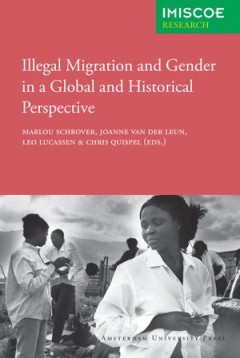
Illegal Migration and Gender in a Global and Historical Perspective
Two issues come to the fore in current debates over migration: illegal migration and the role of gender in illegal migration. This incisive study combines the two subjects and views the migration scholarship through the lens of the gender perspective, investigating definitions of citizenship and the differences in mechanisms of inclusion and exclusion for men and women, producing a comprehensiv…
- Edition
- -
- ISBN/ISSN
- 9789089640475
- Collation
- -
- Series Title
- -
- Call Number
- 300 QUI i
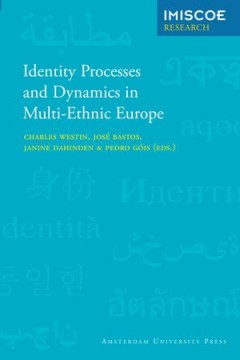
Identity Processes and Dynamics in Multi-Ethnic Europe
This volume is a study of identity processes and identity dynamics in a post-colonial, multiethnic European context that is constantly changing under the pressures of globalisation, migration movements and integration. The authors represent a variety of disciplines: American studies, anthropology, cultural studies, ethnology, history, social psychology and sociology. Eleven of the thirteen chap…
- Edition
- -
- ISBN/ISSN
- 9789089640468
- Collation
- -
- Series Title
- -
- Call Number
- 351.81 BAS i
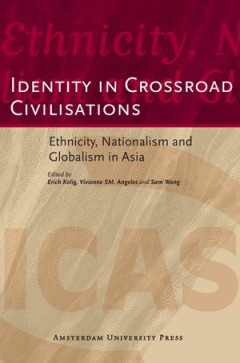
Identity in Crossroad Civilisations
Based on multi-disciplinary studies conducted in Asia (India, Bhutan, China, Japan, Malaysia, Philippines, New Zealand), this volume on Identity in Crossroad Civilisations: Ethnicity, Nationalism and Globalism in Asia demonstrates how identity is defined, negotiated and conceptualised in response to increasing globalisation in the region. Asian expressions of identity reflect, in many ways, the…
- Edition
- -
- ISBN/ISSN
- 9789089641274
- Collation
- -
- Series Title
- -
- Call Number
- 300 ANG i
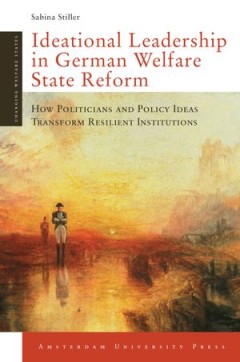
Ideational Leadership in German Welfare State Reform
The author of this innovative study argues that key politicians and their policy ideas, through "ideational leadership", have played an important role in the passing of structural reforms in the change-resistant German welfare state. This argument is based on in-depth case studies of individual reforms in health care, pensions and unemployment insurance since the early 1990s as well as a concis…
- Edition
- -
- ISBN/ISSN
- 9789089641861
- Collation
- -
- Series Title
- -
- Call Number
- 320 STI i
 Computer Science, Information & General Works
Computer Science, Information & General Works  Philosophy & Psychology
Philosophy & Psychology  Religion
Religion  Social Sciences
Social Sciences  Language
Language  Pure Science
Pure Science  Applied Sciences
Applied Sciences  Art & Recreation
Art & Recreation  Literature
Literature  History & Geography
History & Geography